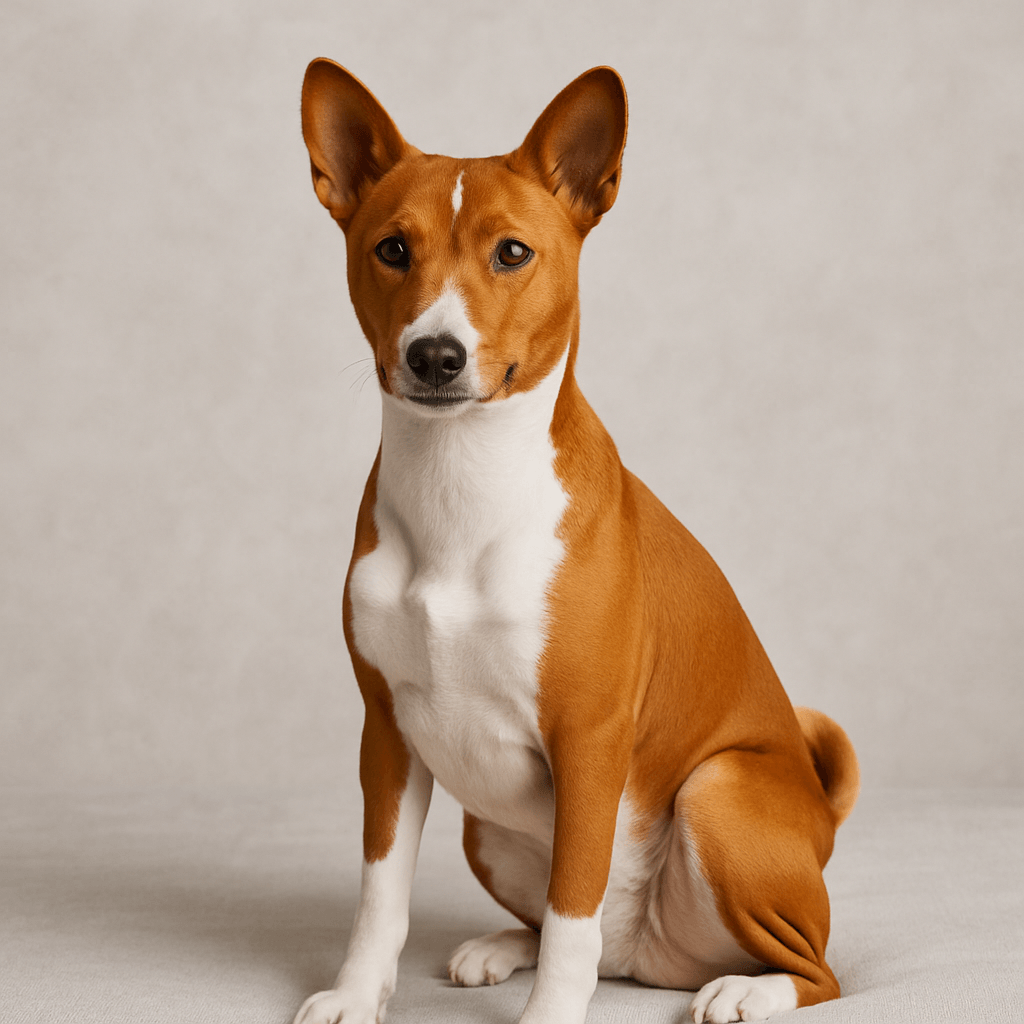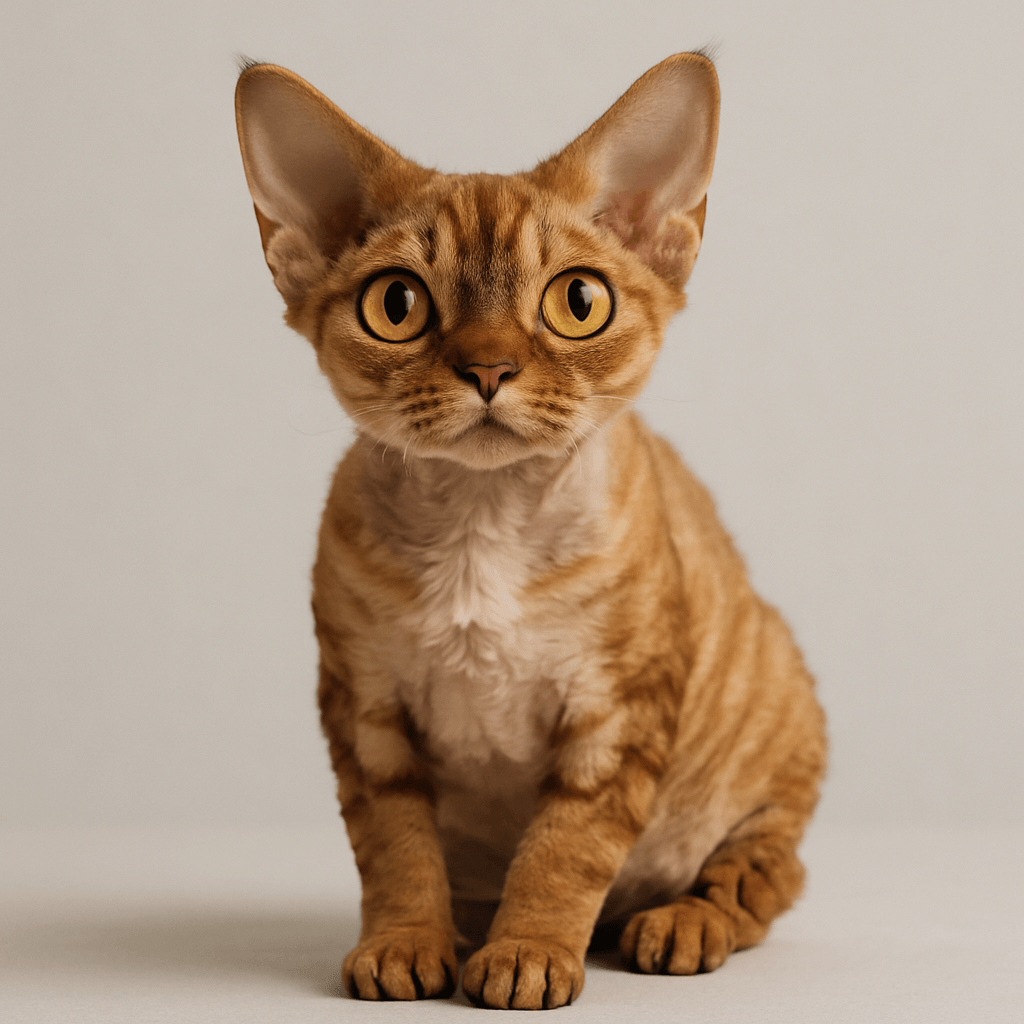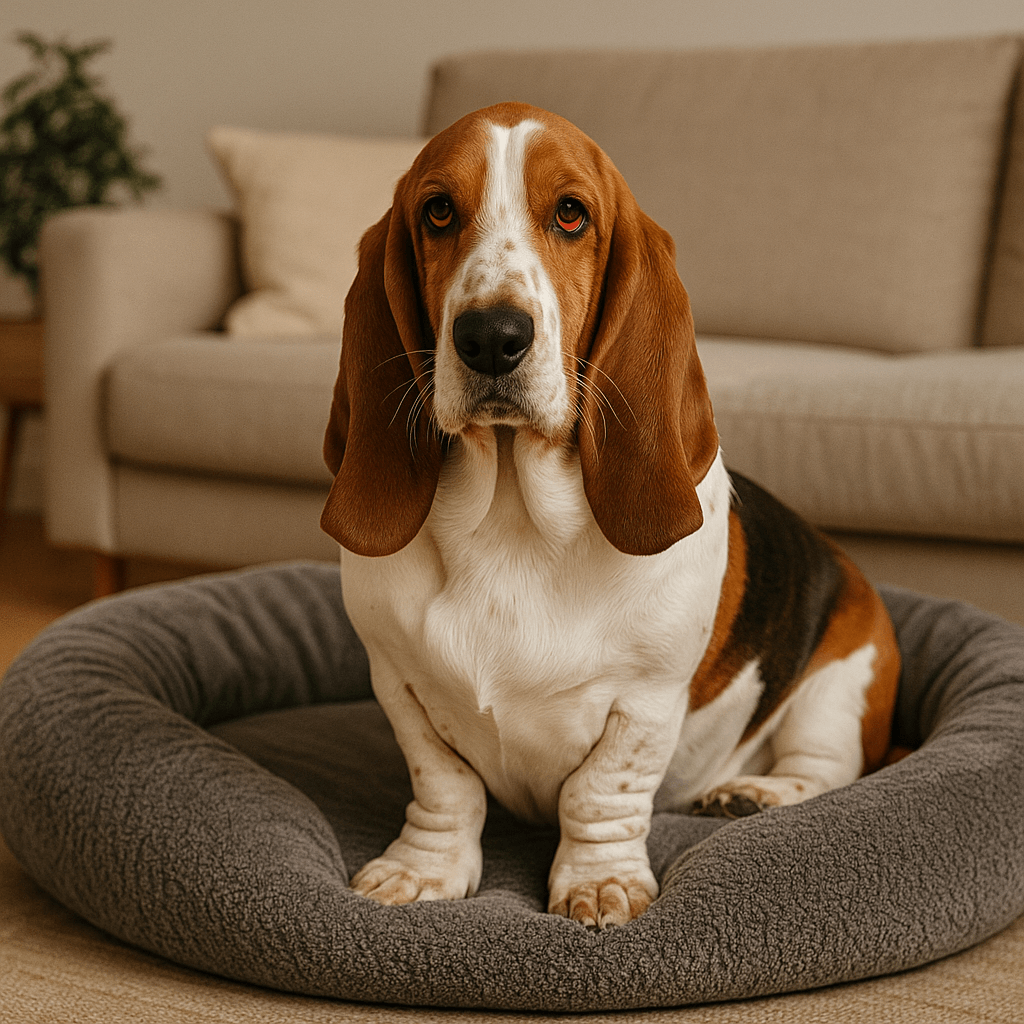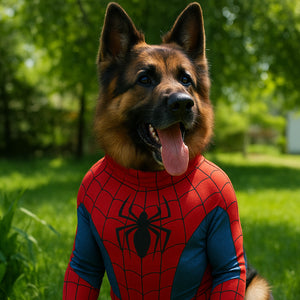
🐕 Basenji – a dog that doesn't bark but speaks with its heart
📜 Origin and history of the breed
The Basenji is one of the oldest dog breeds in the world, dating back thousands of years. Considered the hound of the pharaohs, it has been depicted in ancient Egyptian paintings. It originates from Central Africa, specifically from what is now the Congo, where it was used as a hunting dog—its silent movement and alertness were invaluable during hunts in the dense jungle.
This is a primitive dog that has retained its natural character over the centuries, virtually unchanged by humans. It arrived in Europe and the United States only in the 20th century, where it immediately attracted enormous interest – not only for its exotic origins but also for its unusual characteristics: the Basenji does not bark, but rather produces a yodeling-like sound, the so-called "baroo."
Today, it is considered a companion dog – intelligent, independent and somewhat mysterious, with a fascinating history and an extraordinary personality.
🧠 Character and temperament
The Basenji is a true individual – proud, independent, and highly intelligent. Although loyal to his family, he is not the type of dog that will "just be there for you." He demands respect, and earning his trust is a true honor.
-
Quiet but alert – he doesn't bark, but he closely observes his surroundings and communicates in his own way
-
Independent – thinks in his own way, but can be very sensitive towards loved ones
-
Curious and energetic – loves to explore the world, so needs a lot of exercise
-
Emotionally sensitive – cannot stand shouting or pressure, responds best to calm, consistent care
The Basenji doesn't impose its presence – it's a dog that chooses when to come for petting. But once it establishes a bond, it's devoted to the end. Perfect for those who value silence, aesthetics, and... a bit of canine mystery.
📏 Size and appearance
The Basenji is a medium-sized dog with an elegant, slender build that betrays its agility and speed. It moves gracefully, and its short coat and curled tail give it an exotic, almost aristocratic appearance.
-
Height at the withers: 38–43 cm
-
Weight: 9–12 kg
-
Figure: proportional, light, with strong limbs
-
Head: small, with characteristic, furrowed eyebrows
-
Ears: erect, triangular, giving it a distinctive look
-
Coat: short, close-fitting, smooth
-
Color: most often red with white, black with white, tricolor or brindle
The Basenji looks like a living statue – elegant, noble, and graceful. His gaze is penetrating, and his physique is tense and ready for movement.
🩺 Health and Care
The Basenji is generally a healthy and hardy breed, but like any breed, it has its specific needs:
Health:
-
Fanconi syndrome – a hereditary kidney disease to which the breed may be susceptible; it is worth having regular urine tests
-
Skin problems – delicate fur may react to environmental allergens
-
Digestive disorders – some individuals are sensitive to dietary changes
Care:
-
Coat: easy to maintain – just wipe with a wet cloth or bathe occasionally
-
Claws: Regular trimming – Basenjis do not always wear down their claws naturally
-
Ears and teeth: regular inspection and cleaning
The Basenji doesn't shed heavily, doesn't have the typical dog odor, and often... grooms itself, like a cat. It's an exceptionally clean and easy-to-groom dog.
🎓 Training and activity
The Basenji is an extremely intelligent dog, but also... very stubborn. Training him requires patience, ingenuity, and a great sense of humor.
Training:
-
Responds best to unforced training – positive reinforcement is key
-
He can "play deaf" if he finds something boring
-
Likes challenges and interactive play – learns quickly when motivated
Activity:
-
Needs a lot of exercise – daily walks and runs are essential
-
Loves to explore – walks on a leash or in a fenced area are a must (has a strong hunting instinct)
-
He's good at dog sports like lure coursing – he might not win the competition, but he has a lot of fun.
This is a dog that combines a spirit of adventure with intelligence – he will be the perfect companion for an active owner.
🏡 Basenji in the family
The Basenji is a dog for people who respect their space and value independence—both their own and their pet's. They like people but dislike intrusiveness.
-
Children: he gets along best with calm and gentle ones – he doesn't like noise or violent behavior.
-
Other animals: Can be dominant, especially towards dogs of the same sex; can tolerate cats if raised with them
-
Loneliness: does not cope well with the long absence of its owner – it is a dog that values routine and emotional security
They do best in a house with a garden, but will also adapt well to an apartment – provided they have daily contact with their owner and plenty of exercise.
💤 The perfect place to relax
Although energetic and curious, the Basenji can spend hours lounging in its favorite corner. A comfortable bed like the Osaka from Petto will keep it warm, insulate it from the cold floor, and provide a sense of security.
👉 See the Osaka bed – stylish relaxation for your Basenji
It's best for the bed to be in a quiet, cozy place – close to people, but with the possibility of seclusion when the dog needs peace and quiet.
🚗 Traveling with Basenji
Thanks to its size and calm nature, the Basenji can be a good travel companion, but it needs a sense of security. A stable car seat, such as the Oi model from Petto , is ideal, as it reduces stress and prevents the dog from moving while driving.
👉 See the Oi seat – a safe journey with your Basenji
It's also a good idea to bring along their favorite blanket, water, and treats. Regular walks and a leisurely pace will make every trip a pleasure for your Basenji.
❓ Frequently asked questions (FAQ)
Does a Basenji bark?
No, but it makes a distinctive sound—something between yodeling and singing. It's quiet, but not mute.
Is the Basenji a family dog?
Yes, if the family understands his independence and needs. He's not a cuddle dog, but a loyal companion.
Can he be left home alone?
In the short term, prolonged solitude causes frustration. Ideally, he should have rituals and human presence during the day.
Does the Basenji shed hair?
Very little. The coat is short, close-fitting, and almost non-shedding.
Is the Basenji suitable for apartment living?
Yes, as long as you provide him with daily activity and appropriate stimulation.
🌟 Interesting facts about Basenjis
-
🗿 This is one of the few breeds that do not bark – some call it the "dumb dog".
-
🧬 Primitive breed – genetically closest to the first domesticated dogs.
-
🧹 Cleans itself – Basenjis often lick their fur like cats and don't like to get dirty.
Want a dog with the soul of an explorer who doesn't bark but speaks with his eyes? The Basenji is the choice for you—elegant, independent, loyal... in your own way.




 https://petto.com.pl/
https://petto.com.pl/